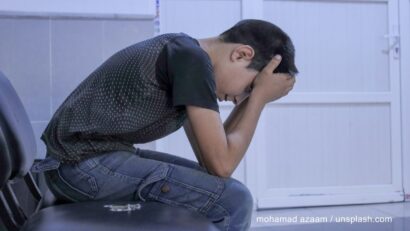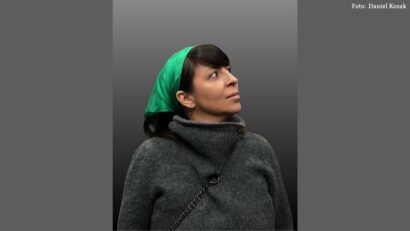The shop of good deeds and community outreach
The story of the Tooth-Mercy Fairy

Christine Leșcu, 27.06.2018, 12:53
“A child smiles an average of 370 times a day, an adult only 7 times, and a sick child 10 times.” This is the observation made by the humanitarian society “Mercy Charity Boutique”. They own what has been described as ‘a good deeds shop’ and one of their main goals is to have sick children, but not only them, display the most beautiful smiles of all. This is usually quite difficult for a child with cancer, who is usually also faced with dental problems. It is just as difficult for children living in rural areas, where there are no dental offices whatsoever, and where more than 75% of the children aged 6 to 11 have cavities on their temporary teeth. That is why Alina Tiplea and Daniela Staicu, the founders of “Mercy Charity Boutique”, have resorted to mobile dental units, to replace the inexistent normal ones. And they have done that under a project called ‘Zana Merciluta’ (‘the Tooth-mercy fairy”). Alina Tiplea told us more about this project:
“The project started in 2014, quite rudimentarily. Children from the Oncologic Institute, for whom dental care is vital, would be taken to a dentist’s office somewhere in Bucharest. As of last year, we have used mobile equipment, because it is very difficult to take these children out of the hospital and carry them to the dentist’s every time. But these consultations are vital to them. That is why we thought of that particular solution, to help them. But, since we’d had several education projects implemented in the rural area, we knew that children living in those areas desperately needed dental care too. So, a mobile dentist’s office was the solution to fit all: a vehicle equipped with all that a dental office needs.”
So far, the Fairy has not preferred any region in particular; it has travelled the country from south to east, from Iasi, to Mures and Dolj. Travelling like that, she noticed that, in the countryside, there are more dental practices on paper than they are in reality. These offices either do not exist at all, or they are just deserted facilities, where nobody carries any activity whatsoever. Moreover, as most of these rural communities are rather poor, people cannot afford to travel to the nearest office or clinic. Here is now Daniela Staicu with more details:
“There are no dental practices no dispensaries in schools, sometimes because school themselves don’t allow it. If there are still dispensaries, their number has diminished over the past years, as several school principals told me, and as regards dental practices, they have disappeared completely. Or dentists were no longer motivated to stay because dental treatments are expensive and people in the countryside cannot afford them. And where there is a dental practice, there arises the issue of money. There is a national program through which children under 18 have the right to benefit from a set of free-of-charge dental procedures on condition that the dentist has a contact with the National or County Medical Insurance House. Otherwise dentists cannot cover the cost of those procedures, and so parents will be obliged to pay from their own pockets for the procedures.”
The lack of medical assistance is doubled by the lack of oral hygiene education. Here is Daniela Staicu:
“Many people don’t have toothpaste and toothbrushes, not to mention that a toothbrush should be changed every 3 months. Since there is a national program ‘Bread roll and milk’ we thought there should also be a program under which children should receive toothpaste and toothbrushes at the beginning and end of the school year, especially in the rural areas where people’s revenues are very small. I personally have never before seen so many small children with tooth decay. They have many missing teeth at the age of 8 or 9. Not to mention dental anomalies. Nobody sees these children, nobody provides counseling, nobody warns them of the seriousness of their condition and nobody provides them with access to basic medical services.”
Some of these basic dental services are now provided by the Tooth-Mercy Fairy and by the volunteering dentists. Here is Alina Tiplea with more:
“We have dentists from Bucharest who are volunteering, and now we started to be contacted by dentists from all across the country. This way dentists keep in contact with the people from the villages around them: maybe there are children who need long-lasting treatments so parents will maintain contact with the dentists. We’ll have a second dental practice to cover a larger area, and this is difficult to achieve with one single car. The car we have now was donated by a bank. We mentioned all our sponsors on the website, and besides them there are also natural persons. Dentists usually volunteer but for them to reach a certain village where to treat children, they need the means, so our association provides them with the means to go there. In the dental office they have all the necessary equipment. Actually the mobile dental office is a car that needs fuel and technical inspection.”
That is why Alina Tiplea and Daniela Staicu will continue to collect donations and make petitions in order to equip more mobile dental practices similar to the Tooth-Mercy Fairy.






























